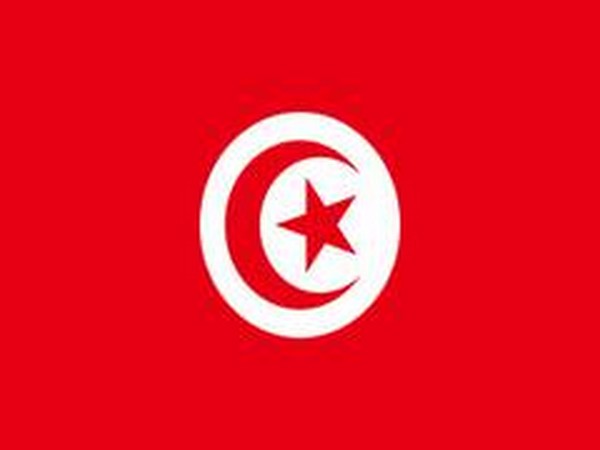Strike paralyses Tunisia, intensifying pressure on Saied
A powerful labour union brought much of Tunisia to a standstill on Thursday as it went on strike over government economic reform plans, increasing pressure on President Kais Saied as opposition to his rule mounts and the economy unravels.

- Country:
- Tunisia
A powerful labor union brought much of Tunisia to a standstill on Thursday as it went on strike over government economic reform plans, increasing pressure on President Kais Saied as opposition to his rule mounts and the economy unravels. Public transport ground to halt, flights were canceled at Tunis-Carthage Airport, and sea ports were paralyzed by the one-day walkout by the UGTT union, which has 1 million members.
The strike followed government proposals for a wage freeze and subsidy cuts, steps designed to yield a badly needed IMF deal for a $4 billion loan to address a crunch in the North African country's public finances. The strike compounded the challenges facing Saied, who has tightened his grip on power since July 2021 when he froze parliament and sacked the cabinet - moves his opponents called a coup against Tunisia's young democracy.
Defying opponents, Saied is now seeking to overhaul the constitution so the president wields more power, against the backdrop of a tanking economy and concern about a public finance crisis unless Tunisia can secure external funding. Signalling resistance to the proposed reforms, thousands of workers gathered in several cities, including the capital Tunis and Sfax, 250 km (150 miles) to the south, witnesses said.
"Saied does not listen to anyone but himself," said Ramzi Hosny, an employee in the state transportation sector, accusing the president of neglecting the economy as Tunisians' purchasing power declines and poverty rises. "We are here to reject the IMF’s dictates," added Hosny, who was protesting at the UGTT Tunis headquarters.
There was no immediate comment from the government on Thursday. A government spokesperson said on Wednesday the strike would inflict a big cost on Tunisia and the union had made unaffordable demands. The UGTT says the strike's goal is economic, not political.
But tensions with the government have surfaced of late, with the UGTT leader saying it was being "targeted" by authorities after refusing to participate in talks on the new constitution, which Saied intends to put to a referendum on July 25. 'SUMMER OF DISCONTENT'?
While many Tunisians welcomed Saied's intervention last July, tired of political bickering, policy-making paralysis, and economic malaise, he is encountering growing opposition. Judges have been on strike since June 4 after he sacked dozens of them. Saied has depicted his actions as a corrective to chronic political dysfunction and corruption.
"The economic and financial crisis is massive, at the same time, Kais Saied - who has increasingly governed on his own - has few allies," said Nadim Houry, executive director of the Arab Reform Initiative think tank. "He is trying to negotiate with the IMF while at the same time doesn't have political backing for the reforms the IMF is requesting," he added.
"Tunisia is facing a summer of discontent." Inflation touched a near-record 7.8% in May. The government has raised fuel prices four times this year.
About 22% of the population is living in poverty, or less than $2 a day, compared with 14% in 2010 - the year before Tunisians rose up against the autocratic president Zine al-Abidine Ben Ali, igniting the Arab Spring revolts fuelled by political and economic grievances. Largely dependent on tourism, the economy was dealt a heavy blow by the coronavirus pandemic before the war in Ukraine compounded pressures on public finances, which the government says have been exacerbated by factors including sharp increases in grain and energy prices.
The IMF director for the Middle East is expected to meet Saied and the prime minister during a two-day visit to Tunisia next week, a government official has said. The government has been pursuing the IMF loan to avoid fiscal bankruptcy, and to gain access to other external funds.
The central bank governor has warned that if Tunisia is unable to secure funds, it would face a scenario like those in Lebanon and Venezuela where public finances have imploded.
(This story has not been edited by Devdiscourse staff and is auto-generated from a syndicated feed.)
- READ MORE ON:
- Kais Saied
- Arab
- Tunisians
- Ben Ali
- Tunis
- UGTT
- Tunisia
- Saied
- Sfax
- Lebanon
- Middle East
- North African
- Venezuela
- Ukraine
ALSO READ
MORNING BID EUROPE-Middle East tensions spook markets
GLOBAL MARKETS-Shares wilt as Middle East tension heats up crude oil
Cyprus president to discuss spike in migrants with EU chief, visit Lebanon
Israeli strikes have made south Lebanon a "devastated agricultural area", PM says
Israel launches strikes on eastern Lebanon after Hezbollah downs drone










